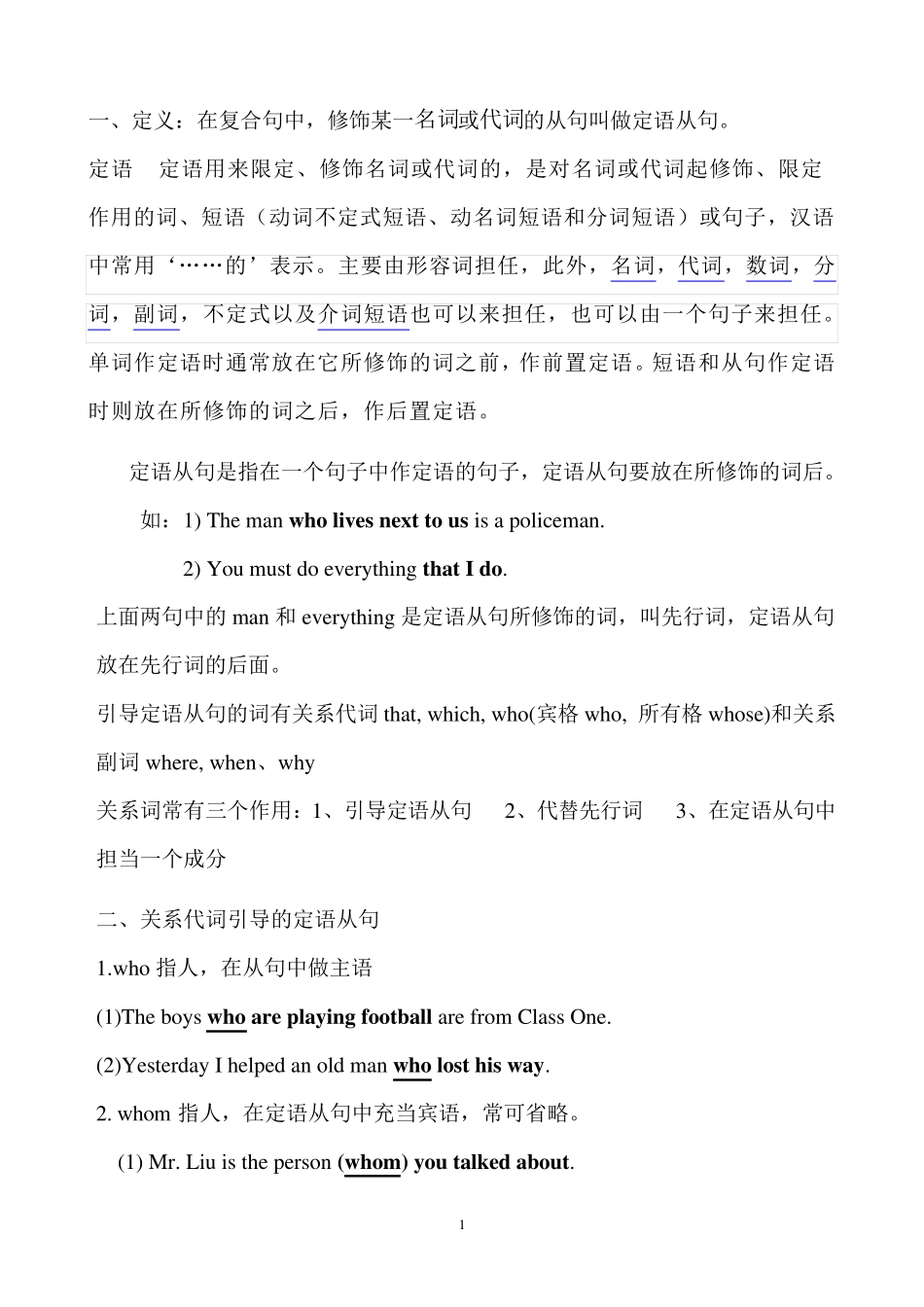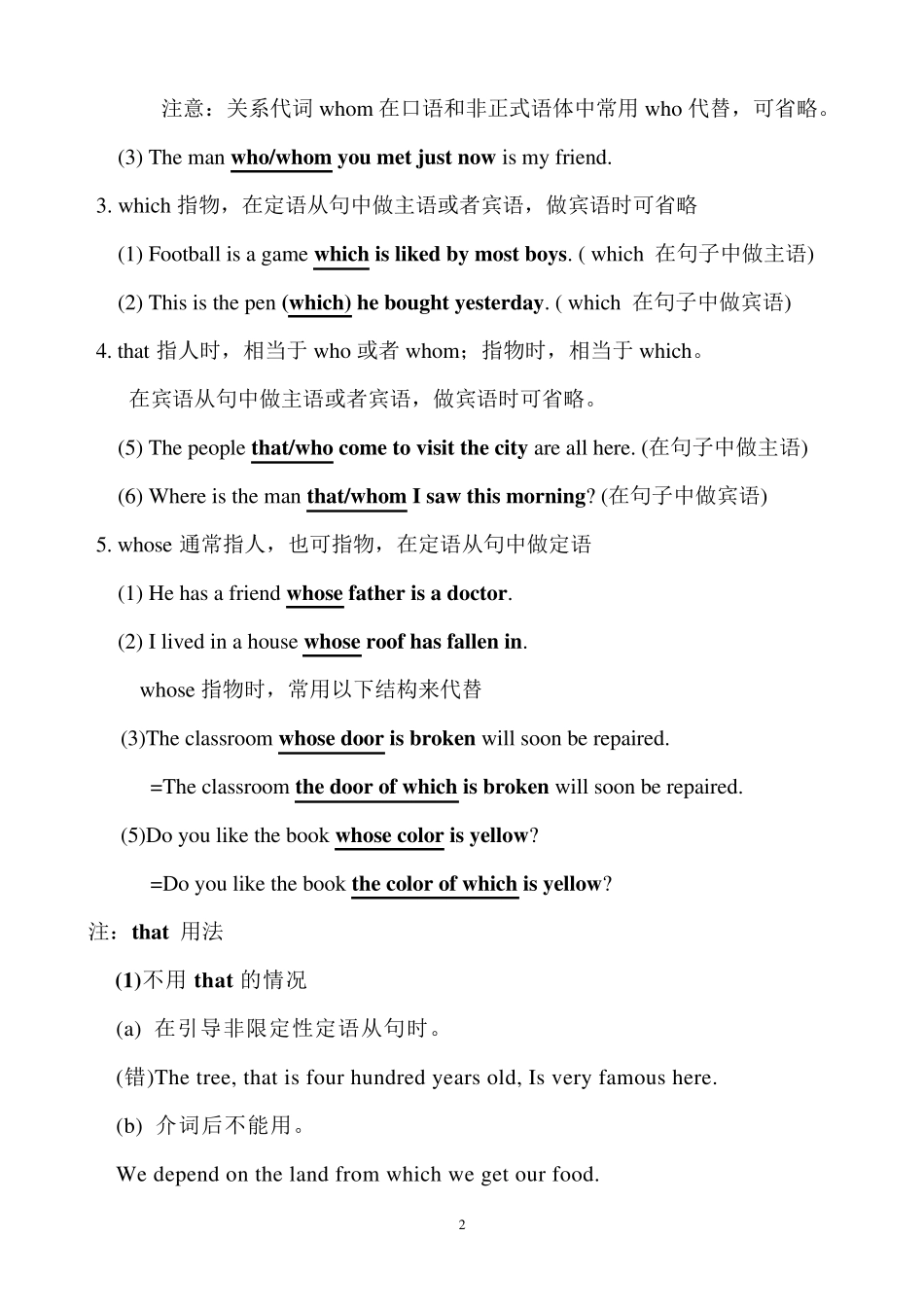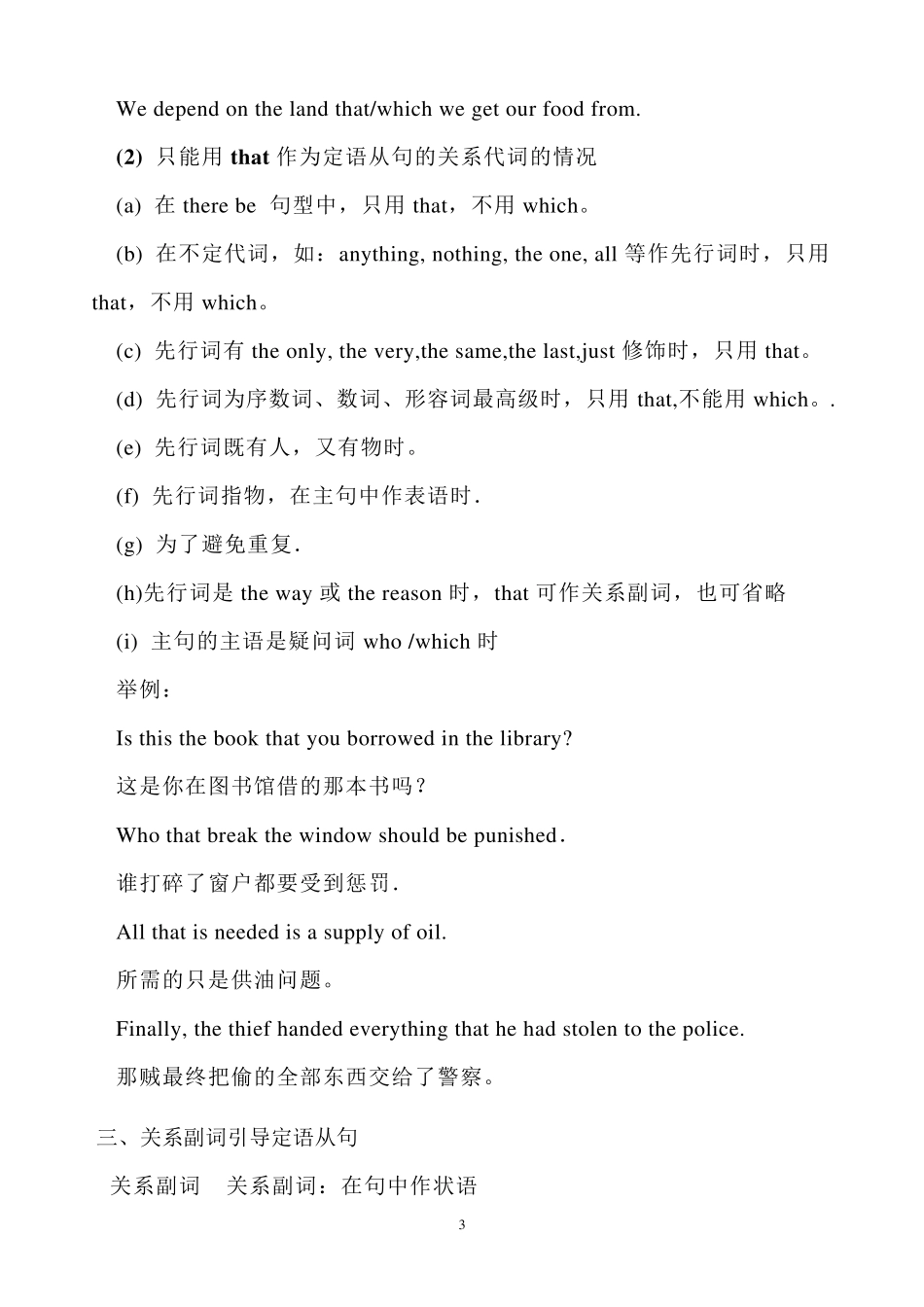1 一、定义:在复合句中,修饰某一名词或代词的从句叫做定语从句。 定语 定语用来限定、修饰名词或代词的,是对名词或代词起修饰、限定作用的词、短语(动词不定式短语、动名词短语和分词短语)或句子,汉语中常用‘……的’表示。主要由形容词担任,此外,名词,代词,数词,分词,副词,不定式以及介词短语也可以来担任,也可以由一个句子来担任。单词作定语时通常放在它所修饰的词之前,作前置定语。短语和从句作定语时则放在所修饰的词之后,作后置定语。 定语从句是指在一个句子中作定语的句子,定语从句要放在所修饰的词后。 如:1) The man who lives next to us is a policeman. 2) You must do everything that I do. 上面两句中的man 和everything 是定语从句所修饰的词,叫先行词,定语从句放在先行词的后面。 引导定语从句的词有关系代词that, which, who(宾格 who, 所有格 whose)和关系副词where, when、why 关系词常有三个作用:1、引导定语从句 2、代替先行词 3、在定语从句中担当一个成分 二、关系代词引导的定语从句 1.who 指人,在从句中做主语 (1)The boys who are playing football are from Class One. (2)Yesterday I helped an old man who lost his way. 2. whom 指人,在定语从句中充当宾语,常可省略。 (1) Mr. Liu is the person (whom) you talked about. 2 注意:关系代词whom 在口语和非正式语体中常用who 代替,可省略。 (3) The man who/whom you met just now is my friend. 3. which 指物,在定语从句中做主语或者宾语,做宾语时可省略 (1) Football is a game which is liked by most boys. ( which 在句子中做主语) (2) This is the pen (which) he bought yesterday. ( which 在句子中做宾语) 4. that 指人时,相当于 who 或者 whom;指物时,相当于 which。 在宾语从句中做主语或者宾语,做宾语时可省略。 (5) The people that/who come to visit the city are all here. (在句子中做主语) (6) Where is the man that/whom I saw this morning? (在句子中做宾语) 5. whose 通常指人,也可指物,在定语从句中做定语 (1) He has a friend whose father is a doctor. (2) I lived in a house whose roof has fallen in. whos...


